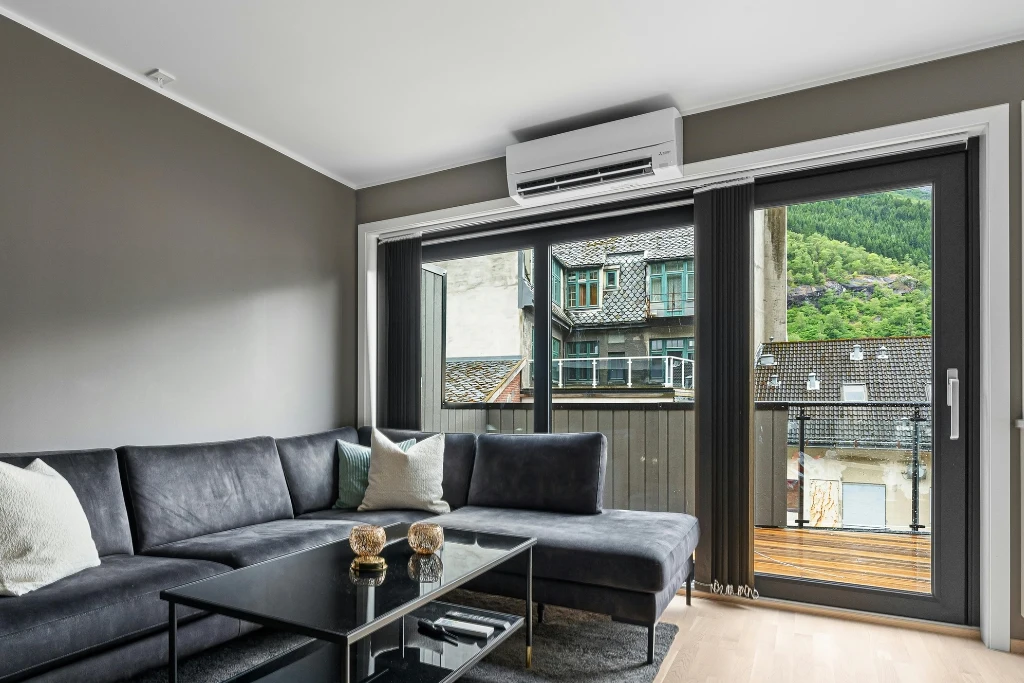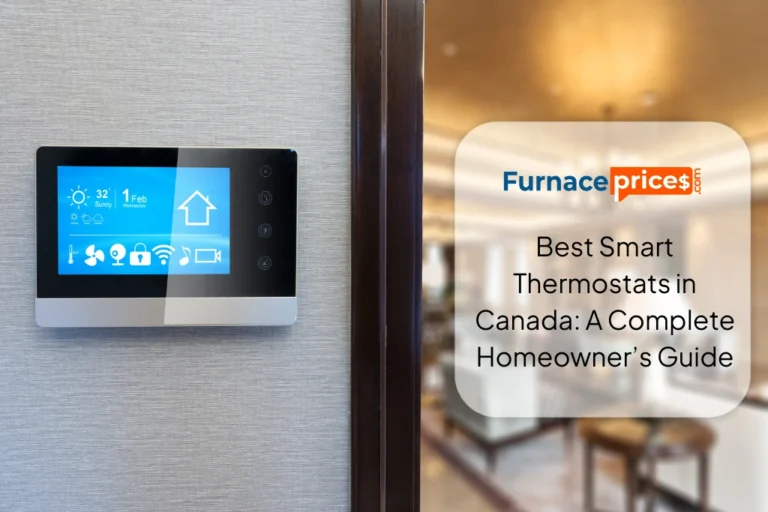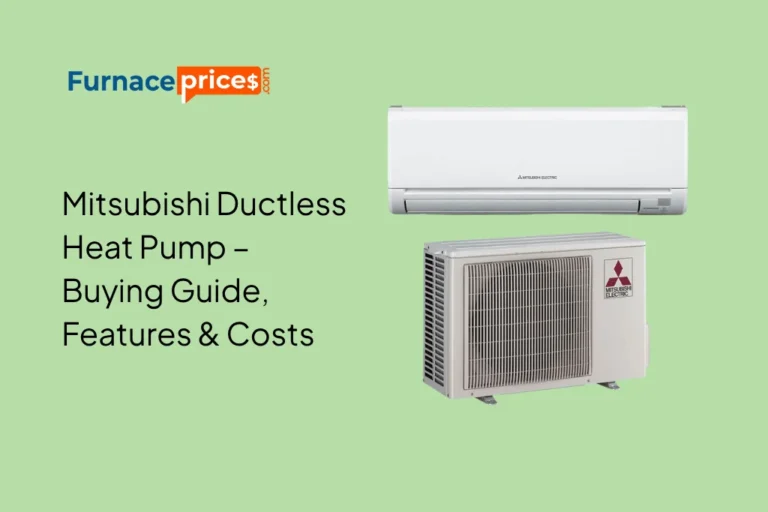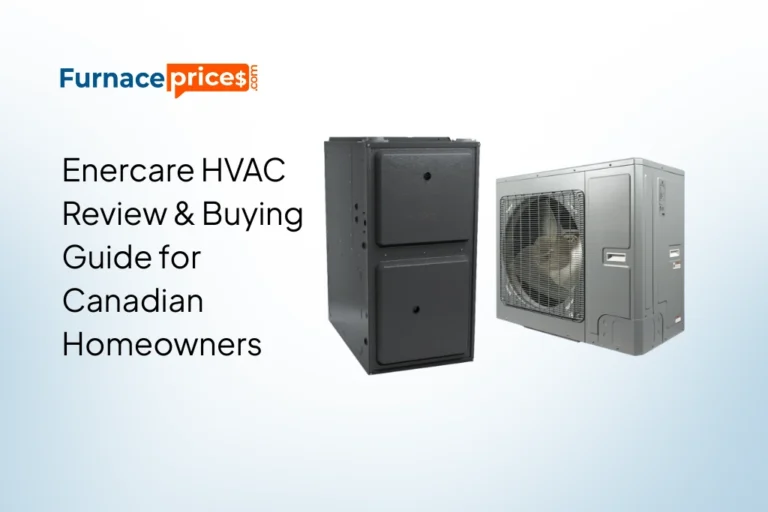-
Emergency/Next-Day Furnace Installation Available!
Cooler, Smarter, Cheaper: Real Ways to Boost Your AC Efficiency

Let’s face it—air conditioning is no longer a luxury during Canadian summers. But what is optional? Overspending on your energy bill. With a few smart changes, you can boost your AC efficiency and stay cool without breaking the bank.
Whether you’re living in a downtown Toronto condo or a family home in Ottawa, your air conditioner doesn’t have to be a power-hungry machine. With the right habits, tweaks, and awareness, you can stretch every cooling dollar further. You can boost your AC efficiency and stretch every cooling dollar.
1. Know Your Cooling Habits Before Blaming Your AC
Before calling for service or shopping for a new unit, look at your daily cooling routine:
- Are you constantly adjusting the thermostat?
- Do you leave windows open with the AC running?
- Are you cooling rooms nobody uses?
🎯 Efficiency starts with awareness. Track your cooling habits for a week—you might be surprised what’s wasting energy.
2. Use Passive Cooling Techniques
Let your home do the hard work before your AC kicks in:
- Keep blinds closed during peak sun hours (10 AM – 4 PM)
- Open windows at night when it’s cooler
- Install reflective film on south-facing windows
- Create cross-ventilation by opening windows on opposite ends
🏠 Your home should act like a shield. The less heat it absorbs, the less your AC has to work—helping you boost AC efficiency naturally.
3. Let Fans Work With Your AC—Not Against It
Fans don’t lower the temperature, but they help you feel cooler:
- Use ceiling fans to circulate cool air
- Set fans to spin counter-clockwise in summer
- Turn off fans in unused rooms
🔄 Pro tip: Raise your AC by 2–3°C and run ceiling fans—you’ll stay cool and cut energy costs.
4. Mind the Gaps: Insulation Isn’t Just for Winter
Cool air escapes just like heat does. Patch up these common leak points:
- Gaps around windows and doors
- Old door seals (add weatherstripping)
- Attic hatches, rim joists, and ductwork
🧊 Up to 30% of your cooling energy can be lost through leaks—patching them is one of the easiest ways to boost your AC efficiency.
5. Prep Your AC Before the Season Starts
Don’t wait for a heatwave—tune up your system early in the season to boost your AC efficiency:
- Clear debris from around the outdoor unit
- Clean or replace the air filter
- Gently rinse condenser coils
- Test the system before peak summer
🛠️ Even 10 minutes of prep can prevent mid-season breakdowns.
6. Don’t Set and Forget—Use Smart Cooling Schedules
Even basic thermostats let you save energy based on your daily routine and help you boost your AC efficiency:
- Set to 28°C when you’re out
- Lower to 24°C before bed
- Slightly higher (26°C) at night with fans
📉 Smart thermostats can save up to $150 per year. Smarter control equals better comfort and savings.
7. Upgrade If You Must—But Only If You Should
Before replacing your AC, explore whether an upgrade is truly necessary or if minor improvements can boost your AC efficiency:
✅ Check the SEER rating (Seasonal Energy Efficiency Ratio)
✅ Schedule a tune-up
✅ Review insulation and duct condition
✅ Ensure the unit isn’t oversized (a common problem)
💡 An oversized AC cools fast—but doesn’t remove humidity well, leaving the air sticky and uncomfortable.
8. Consider Zoning or Ductless Add-Ons
If you’re mostly in a home office or basement, consider zoning solutions to boost your AC efficiency:
- Try ductless mini-splits for targeted cooling
- Add smart zoning dampers
- Use individual room thermostats
🏡 Why cool your whole house if you’re only in two rooms?
Final Thoughts: Efficiency is a Lifestyle, Not a Setting
Air conditioning shouldn’t feel like a financial burden. With just a few changes in mindset, setup, and schedule, you can keep your home cool—without sweating the energy bill. You can boost your AC efficiency without sacrificing comfort.
The key isn’t to overcool—it’s to cool smart.👉 Want expert-backed tips or help finding a local HVAC technician?
Visit our homepage for comparisons, buying guides, and trusted service providers near you.
Technical & DIY Maintenance Guides
The U.S. Department of Energy – Air Conditioning Guide
https://www.energy.gov/energysaver/central-air-conditioning
→ Great general resource even for Canadian readers to understand how AC systems work efficiently.
✅ Ready to boost your AC efficiency and find the best cooling solutions locally?
📞 Visit FurnacePrices.com to compare air conditioner prices, read real reviews, and connect with certified HVAC contractors in your area.
📍 Serving Ontario cities including Hamilton, Burlington, Brantford, Cambridge, Kitchener, Milton, and Oakville.
Contact Us 📧 Contact us at contact@furnaceprices.com for quotes or general inquiries.
💬 Let’s make your home cool, comfortable, and energy-efficient—your smarter cooling journey starts here.






